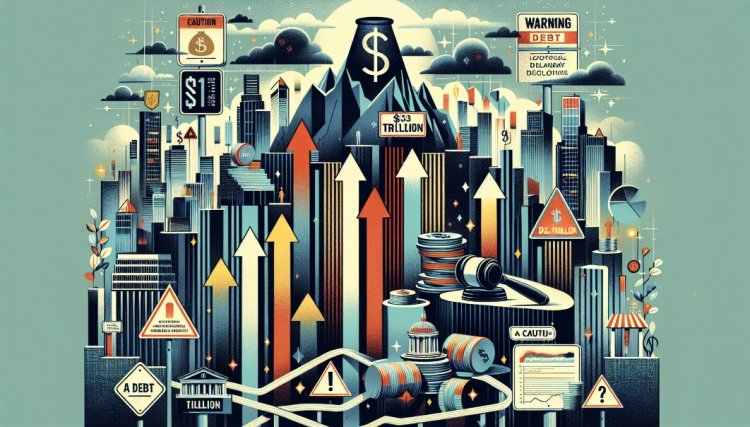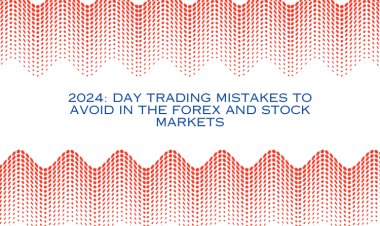"The Market's Lack of Crash Explained" Potential Deterioration Beyond 2008
Unpacking the mystery: Why hasn't the market crashed like 2008? Explore potential explanations for its resilience, but prepare for lurking risks that could trigger a downturn beyond 2023.

Introduction: The Instability of the Economy
The recent fraud verdict in the FTX case highlights the need for paranoia in the due diligence process. It serves as a reminder that being cautious and thorough in assessing investment opportunities is crucial to protecting oneself from potential fraud or financial risks.
Furthermore, several warning signs in the economy indicate the need for caution and preparedness. Executives across various industries are expressing their belief in an impending recession, with 86% of them anticipating its arrival. This sentiment is a clear indication of the uncertainty and potential instability that lie ahead.
Another alarming factor contributing to the instability is the overwhelming levels of debt in the economy. The United States alone has a staggering $33 trillion in debt, the highest it has ever been. This debt burden poses significant risks to the overall financial health of the country.
Discussion on the FTX Case and its Implications
The recent conviction of Sam Bankman-Fried in the FTX case is significant and highlights the need for caution in the due diligence process. The magnitude of the fraud, amounting to $8 billion, and the fact that Bankman-Fried had political connections raise concerns about accountability and the potential for abuse of power.
Accountability plays a crucial role in this case, as it demonstrates that even individuals with significant resources and influence can be held responsible for their actions. The conviction of Bankman-Fried sends a clear message that fraudulent activities will not be tolerated, regardless of an individual's status or connections.
This case also has implications for other companies, as it serves as a reminder of the need for caution when investing in or partnering with businesses. The FTX case highlights the importance of conducting thorough due diligence to identify any potential red flags or fraudulent activities. Companies must be proactive in assessing the credibility and integrity of their business partners to mitigate risks.
Furthermore, this case emphasises the need for regulatory oversight and stricter enforcement to prevent and detect fraudulent activities. It raises questions about the effectiveness of existing regulations and the need for stronger measures to safeguard investors and the overall financial system.
Overall, the conviction of Sam Bankman-Fried in the FTX case serves as a stark reminder of the potential dangers of fraud and the importance of accountability. It calls for increased caution and vigilance in the business world, as well as a greater focus on transparency and integrity. Companies and individuals must exercise caution when entering into partnerships or investments and be proactive in conducting thorough due diligence to protect themselves from potential fraud or financial risks.
Exploring the Mindset of Fraudsters and the Messianic Complex
Fraudsters like Sam Bankman-Fried, the recent convict in the FTX case, have unique motivations and mindsets that drive their actions. Greed, a desire for power and control, and a disregard for moral boundaries are the driving forces behind these people. They are willing to take extreme risks and manipulate others for personal gain.
One of the key aspects of the mindset of fraudsters like Bankman-Fried is the concept of a messianic complex. This complex refers to the belief that they possess special knowledge or abilities that allow them to save or reshape the world. They view themselves as messiahs or saviours, with a grandiose vision of their own importance and impact.
This messianic complex often leads fraudsters to engage in unethical and illegal activities, as they believe that the ends justify the means. They are willing to deceive and manipulate others, including investors and business partners, to achieve their grand vision. This mindset can be incredibly dangerous, as it allows them to justify their actions and disregard the harm they may cause to others.
Furthermore, fraudsters like Bankman-Fried often have a complete disregard for personal responsibility. They shift blame onto others or deny any wrongdoing, refusing to take accountability for their actions. This lack of personal responsibility allows them to continue their fraudulent activities without remorse or concern for the consequences.
Insights into the mindset of fraudsters can be gained from the book 'Going Infinite' by Sam Bankman-Fried's mother. In this book, she explores the limits of personal responsibility and questions societal norms surrounding blame. However, it is important to note that Bankman-Fried's actions and mindset cannot be solely attributed to his upbringing or his mother's perspective.
The mindset of fraudsters and their messianic complex have a significant impact on others. Their actions can cause financial harm to individuals, companies, and even the overall financial system. Individuals, investors, and businesses must be cautious and conduct thorough due diligence to identify potential red flags and fraudulent activities.
Lessons from Past Economic Crises
As we navigate the current economic climate, it's important to reflect on the lessons learned from past economic crises. Comparing the 2008 market crash to the current situation can provide valuable insights into the challenges we face today. The role of debt and interest rates in the sustainability of the economy is a crucial factor to consider.
In 2008, the market crash was triggered by the overwhelming levels of debt in the economy, particularly in the housing market. This led to a wave of foreclosures and a collapse in the financial sector. Today, we are also facing high levels of debt, with the United States alone having a staggering $33 trillion of debt. This debt burden poses significant risks to the overall financial health of the country.
Interest rates play a key role in the sustainability of the economy. In 2008, low-interest rates fueled the housing bubble, as people were able to take on excessive debt with low monthly payments. Similarly, the current economic climate is characterised by historically low-interest rates, which have encouraged borrowing and contributed to asset price inflation.
The concept of the instability hypothesis in financial cycles is another important lesson from past economic crises. Financial cycles are inherently unstable, with periods of optimism and excessive risk-taking followed by periods of downturn and contraction. The cycle of debt accumulation and deleveraging is a recurring pattern in the economy.
Pulling out of a debt spiral is a significant challenge that requires tough decisions and austerity measures. A debt spiral occurs when the cost of servicing debt becomes unsustainable, leading to defaults, bankruptcies, and a downward economic spiral. Austerity measures, such as cutting government spending and increasing taxes, are often necessary to restore fiscal stability and regain investor confidence.
In summary, comparing the 2008 market crash to the current economic climate highlights the importance of managing debt and interest rates, understanding the concept of instability hypothesis in financial cycles, and recognising the challenges of pulling out of a debt spiral. Learning from past economic crises can help inform our decisions and actions to navigate the complexity of the current economic landscape.
Factors Influencing the Current Economic Landscape
The current economic landscape is complex and influenced by various factors. Understanding these factors is crucial for navigating the uncertain and potentially unstable environment we find ourselves in. Here are some key factors that are currently shaping the economic landscape:
The impact of money printing and its effect on wealth distribution
Money printing, or the process of increasing the money supply, has been a significant driver of economic policies in recent years. While it can stimulate economic growth and prevent deflation, excessive money printing can have adverse effects on wealth distribution. The wealthy, who have more access to financial assets, tend to benefit more from the resulting asset price inflation, widening the wealth gap. Those with lower incomes may struggle to keep up with rising prices, leading to increased income inequality.
The importance of India's role in the global economy
India's role in the global economy has become increasingly significant. With a growing population and a thriving technology sector, India has become a major player in industries such as IT services and manufacturing. The country's economic policies and its relationship with other global powers, particularly China, have a significant impact on the global economic landscape. Observing India's economic growth and its interactions with other nations is crucial for understanding the current state of the global economy.
The significance of the semiconductor industry and Taiwan
The semiconductor industry plays a critical role in various sectors, including technology, telecommunications, and automotive. Taiwan, in particular, is a major player in semiconductor manufacturing, producing high-quality and technologically advanced chips. The global demand for semiconductors, coupled with the ongoing chip shortage, has put Taiwan in a position of influence. Any disruptions in the semiconductor industry, such as supply chain issues or geopolitical tensions, can have ripple effects on the global economy.
The potential consequences of the China-India conflict
The ongoing conflict between China and India has the potential to impact the global economy. Both countries play significant roles in various industries, and any escalation of tensions or disruptions in trade relations can have far-reaching consequences. The conflict can affect supply chains, trade routes, and investment flows, creating uncertainty and volatility in the economic landscape. Monitoring the developments and potential resolutions of the China-India conflict is crucial for understanding its impact on the global economy.
In conclusion, various factors are currently influencing the economic landscape. The impact of money printing, India's role in the global economy, the significance of the semiconductor industry, and the consequences of the China-India conflict are just a few of the key factors to consider. Staying informed and understanding these factors can help individuals and businesses navigate the complexities of the current economic landscape.
Forecasting and action planning for the future
As we navigate the complex economic landscape, it is crucial to engage in forecasting and action planning to prepare for the future. By mapping out different economic scenarios and considering various factors, we can better understand the potential challenges and opportunities that lie ahead.
The Need to Map Out Different Economic Scenarios
Given the uncertainty and potential instability in the economy, it is essential to map out different economic scenarios. This involves analysing various factors such as debt levels, interest rates, geopolitical tensions, and global trade dynamics. By exploring different scenarios, we can identify potential risks and develop strategies to mitigate them.
Considering the Potential Impact of World War III and Rising Interest Rates
One scenario that needs to be considered is the potential impact of World War III. Geopolitical tensions between countries like China and India can have far-reaching consequences for the global economy. By analysing the potential outcomes of such conflicts, we can better understand the risks and plan accordingly.
Another factor to consider is the impact of rising interest rates. As interest rates increase, the cost of borrowing for individuals and businesses also rises. This can lead to decreased consumer spending, reduced business investment, and potentially slower economic growth. By assessing the potential impact of rising interest rates, we can make informed decisions about investments and financial planning.
Assessing the Role of Transportation Industry Trends as Indicators
The transportation industry can serve as an indicator of broader economic trends. For example, fluctuations in shipping volumes, trucking capacity, and airline traffic can provide valuable insights into the health of the economy. By analysing transportation industry trends, we can gain a better understanding of economic conditions and make more informed forecasts.
The Importance and Challenges of Long-Term Economic Planning
Long-term economic planning is crucial for sustained economic growth and stability. However, it comes with its own set of challenges. With frequent changes in political leadership and shifting economic priorities, it can be difficult to implement and maintain long-term plans. Nevertheless, it is essential to engage in long-term economic planning to ensure a more stable and prosperous future.
In conclusion, forecasting and action planning are critical to navigating the complexity of the current economic landscape. By mapping out different economic scenarios, considering potential risks and opportunities, and engaging in long-term economic planning, we can better prepare for the future. While the economic landscape remains uncertain, proactive and informed decision-making can help mitigate risks and maximise opportunities.
The Growing Disparity and the Importance of Skill Development
The current economic landscape is characterised by a widening gap between the rich and the poor. This disparity is driven by various factors, including the role of AI and technology in advancing wealth creation. While these advancements have led to economic growth, they have also contributed to the concentration of wealth among a small percentage of the population.
AI and technology have transformed industries and created new opportunities for wealth accumulation. However, these advancements have also disrupted traditional job markets and rendered certain skills obsolete. As a result, individuals who do not possess the necessary skills to thrive in the digital economy are at a disadvantage.
Continuous learning and acquiring new skill sets have become crucial in this changing economic landscape. The ability to adapt and upskill is essential to remaining competitive and securing stable employment. With the rapid pace of technological advancements, skills that were once in demand may become outdated, making it necessary to continually learn and adapt.
Failure to develop new skills and adapt to the changing economic landscape can have severe consequences. Those who are unable to keep up with technological advancements risk being left behind and facing unemployment or underemployment. This can lead to financial instability, decreased quality of life, and limited opportunities for upward mobility.
Furthermore, the increasing disparity between the rich and the poor can have broader societal implications. It can lead to social unrest, inequality, and a lack of social mobility. The concentration of wealth in the hands of a few can hinder economic growth and stability, as well as create barriers to entry for others.
To address these challenges and mitigate the growing disparity, individuals need to prioritize skill development and continuous learning. This can be done through formal education, vocational training, online courses, or self-study. By acquiring new skills and staying updated on industry trends, individuals can enhance their employability and seize new opportunities in the digital economy.
Moreover, governments, businesses, and educational institutions play a crucial role in promoting skill development and providing resources for individuals to acquire new skills. They can create programs, incentives, and funding opportunities to support lifelong learning and ensure that individuals have access to the resources they need to thrive in the changing economic landscape.
In conclusion, the growing disparity between the rich and the poor and the advancements in AI and technology highlights the importance of skill development in the current economic landscape. Continuous learning and acquiring new skill sets are essential to remaining competitive and adapting to the changing job market. Failure to develop new skills can have severe consequences, including unemployment and limited opportunities for upward mobility. By prioritising skill development and supporting lifelong learning, individuals can navigate the complexities of the current economic landscape and secure a more prosperous future.



 admin
admin 










